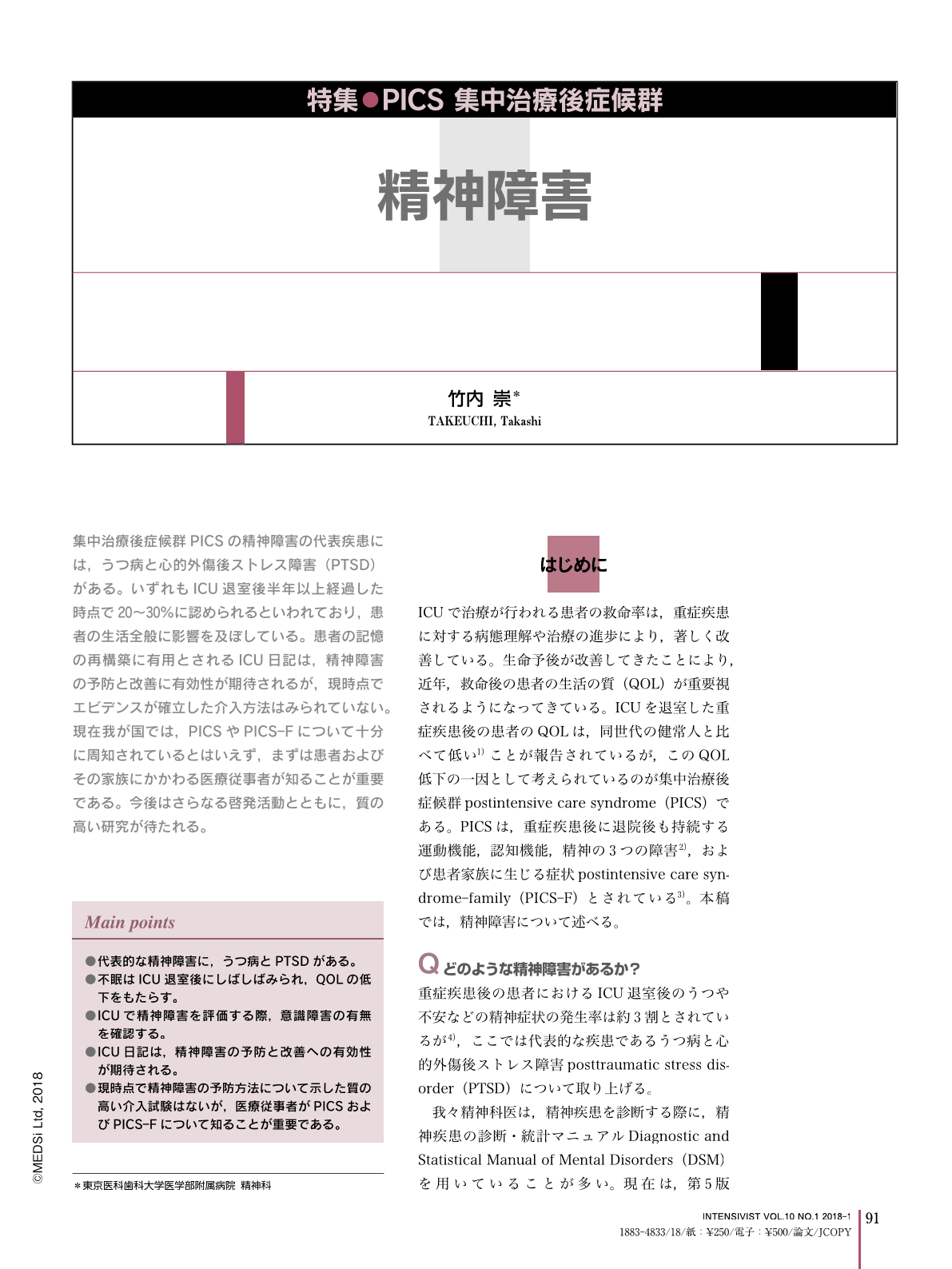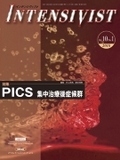Japanese
English
- 有料閲覧
- Abstract 文献概要
- 1ページ目 Look Inside
- 参考文献 Reference
集中治療後症候群PICSの精神障害の代表疾患には,うつ病と心的外傷後ストレス障害(PTSD)がある。いずれもICU退室後半年以上経過した時点で20〜30%に認められるといわれており,患者の生活全般に影響を及ぼしている。患者の記憶の再構築に有用とされるICU日記は,精神障害の予防と改善に有効性が期待されるが,現時点でエビデンスが確立した介入方法はみられていない。現在我が国では,PICSやPICS-Fについて十分に周知されているとはいえず,まずは患者およびその家族にかかわる医療従事者が知ることが重要である。今後はさらなる啓発活動とともに,質の高い研究が待たれる。
Main points
●代表的な精神障害に,うつ病とPTSDがある。
●不眠はICU退室後にしばしばみられ,QOLの低下をもたらす。
●ICUで精神障害を評価する際,意識障害の有無を確認する。
●ICU日記は,精神障害の予防と改善への有効性が期待される。
●現時点で精神障害の予防方法について示した質の高い介入試験はないが,医療従事者がPICSおよびPICS-Fについて知ることが重要である。
Depression and posttraumatic stress disorder (PTSD) are two major mental illnesses which comprise postintensive care syndrome (PICS). In ICU survivors, the incidence of depression and PTSD are as high as 20 to 30% at six months after ICU discharge, with a negative impact on the survivors' quality of life. The ICU diary, as a reconstructive measure for a patient's memory during the ICU stay, may be effective for the prevention of and improvement in mental illness in survivors, although a definitive intervention has not been established. In Japan, awareness of PICS in ICU survivors and their families is still insufficient, and therefore, a thorough understanding of the syndrome by health care providers is the first priority. Further educational and research activities in this area are necessary in the future.

Copyright © 2018, MEDICAL SCIENCES INTERNATIONAL, LTD. All rights reserved.


